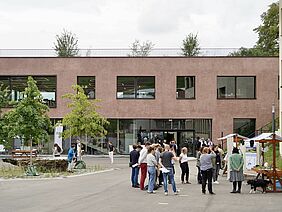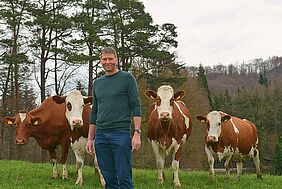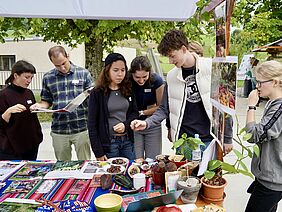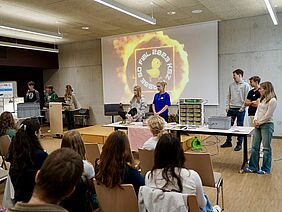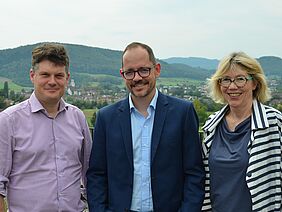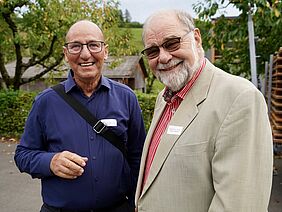(Frick, 5 September 2023) This year the Research Institute of Organic Agriculture FiBL celebrates the 50th anniversary of its establishment. "One component of our winning formula is that we develop innovations together with farmers and the food sector," says Jürn Sanders, who heads FiBL Switzerland together with Beate Huber and Michel Keppler. "We ensure rapid knowledge transfer from practitioners to researchers and vice versa." Around 600 commercial farms are involved in the FiBL research network. Stefan Jegge has been working with FiBL for twenty years: "I have often been able to sense just how important the practical side is to FiBL. I am taken seriously as a farmer." Top-level international research and benefits for local farming practice under one roof − what may sound impossible is part of everyday life at FiBL.
FiBL Switzerland in numbers
- Around 300 employees
- Around 30 million Swiss francs turnover per annum
- Around 600 commercial farms in the FiBL Switzerland research network
- Around 300 projects worldwide per year
- Around 90 peer-reviewed publications per year
It all began with one pioneer. Today FiBL is a globally active institute.
Cooperation with practitioners has been embodied at FiBL since its establishment fifty years ago. This anniversary was celebrated by some 200 FiBL staff and guests on Innovation Day on the last day of August. Casting an eye over the large buildings, laboratories and the research greenhouse on the FiBL Campus in Frick, Aargau, it is hard to imagine that FiBL once consisted of just one person, its first Director Hartmut "Hardy" Vogtmann. "FiBL has always been more than an institute. It is one big family. Today it is more important than ever to cultivate the awareness that everything is connected, and that is also true for the farming sector," said Hardy Vogtmann at the event. "With organic farming we are not only halting biodiversity loss but we are also rebuilding biodiversity."
One of the many topics on Innovation Day was how agroforestry serves globally to support biodiversity. Scientist Johanna Rüegg, who specialises in agroforestry systems, said: "Biological agroforestry systems have the ability to buffer temperature extremes and regulate the water regime. This has been well demonstrated by our long-term trial in Bolivia." Close cooperation with farmers is indispensable: "As researchers, we learn a lot from traditional cultivation practices and the producers’ observations − both in Switzerland and in the tropics."
Researchers compare notes with future generations
On Innovation Day, the researchers also exchanged ideas with the fifth grade of the Zug Cantonal School. The class presented their "Food Waste to Chicken Nuggets" project. The high-school students had collected food waste from the school canteen and used it to breed maggots. They also grew garden cress in a vertical growing system using LED lights and an irrigation system. Using the maggots and garden cress, the class raised chickens which they then processed into chicken nuggets. The FiBL researchers were greatly impressed by the project, which reduces food waste and involves the entire value chain. Former director Urs Niggli was similarly captivated and sees this kind of creativity as an element for success. "It is important that FiBL remains alert, wild and hungry in the future, even if its infrastructure is now top-notch and finances are stable."
Further information
Contacts
- Jürn Sanders, Member of the Board of Directors of FiBL Switzerland
- Franziska Hämmerli, Media spokesperson of FiBL Switzerland
Link
fibl.org: Information on 50 years of FiBL




